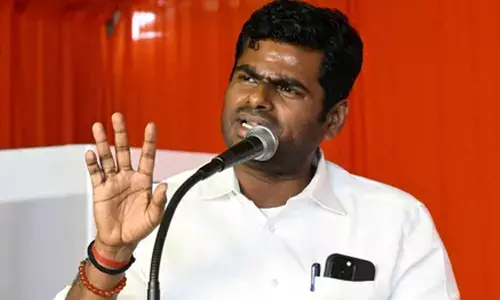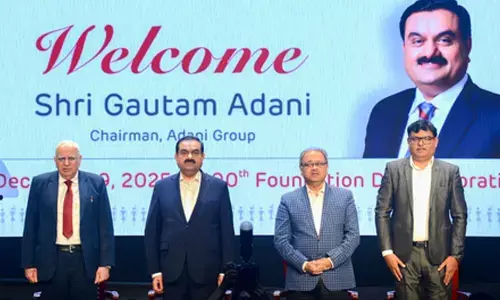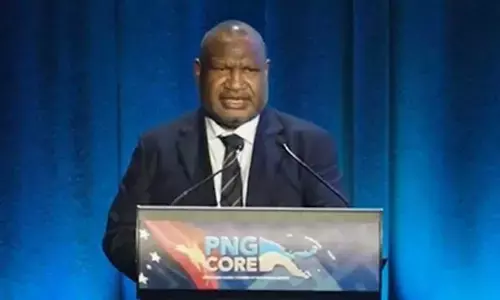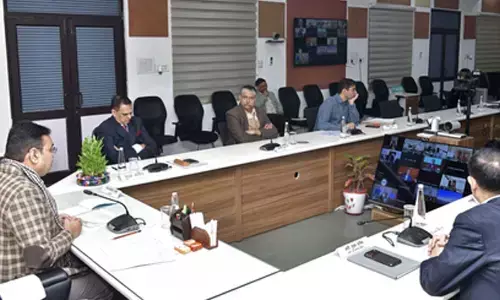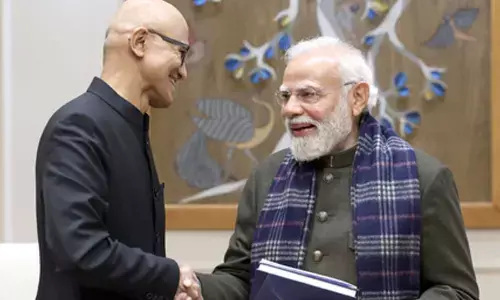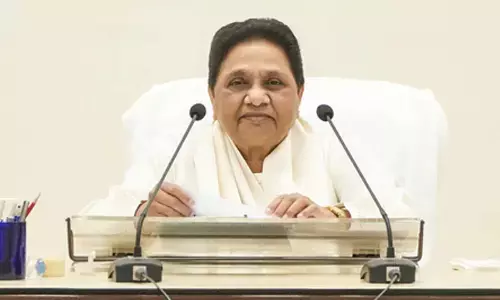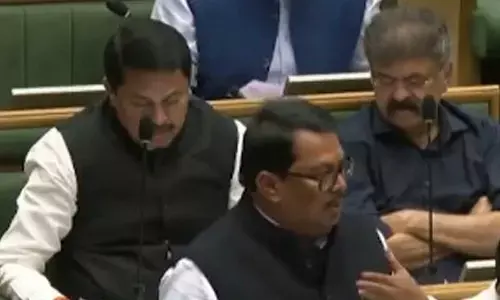Mita Vashisht opens up about her character in ‘Agnipankh’
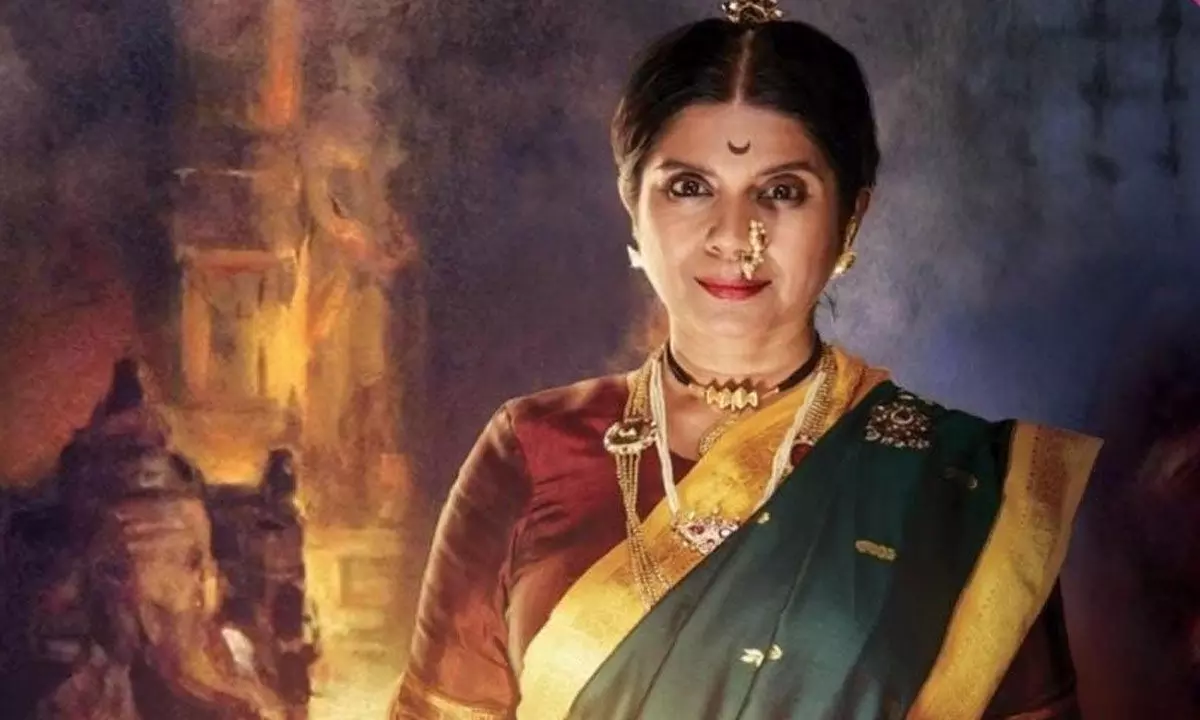
Mita Vashisht who has worked across diverse industries, genres, languages, and formats is excited that now her play ‘Agnipankh’ will be aired in Telugu for audiences in Andhra Pradesh and Telangana
Seasoned actor Mita Vashisht’s powerful performances on stage as well as on both big and small screens have won her much acclaim over the decades. Her portrayal of Durgeshwari, an upright, feudal matriarch in Zee Theatre’s teleplay ‘Agnipankh’ is no exception.
Seasoned actor Mita Vashisht’s powerful performances on stage as well as on both big and small screens have won her much acclaim over the decades. Her portrayal of Durgeshwari, an upright, feudal matriarch in Zee Theatre’s teleplay ‘Agnipankh’ is no exception. Mita who has worked across diverse industries, genres, languages, and formats is excited that now the play will be aired in Telugu for audiences in Andhra Pradesh and Telangana.
In an exclusive conversation with Hans India, Mita shares about her journey with ‘Agnipankh.’ Let’s have a look into it.
How did you initially get into acting and what drew you to this profession?
I have been in this profession for over 38 years and right from beginning at the age of 19 in the early 80s, I knew that acting was my calling. We are talking about a time when there was no television, OTT or as many creative platforms or formats as we see today. There was just the Hindi film industry which seemed as far away from one’s imagination as the moon. So going into films wasn’t something you aspired to. Yet, I realized that all I wanted to do was lead a full life brimming with stories and when I did my first play, that was it. Days before the play, I fell sick and could barely stand on the stage but once the curtain rose, I forget that I had been in hospital for two weeks, or that I hadn’t really rehearsed every day and managed to perform fabulously. That day, I felt totally connected to my calling for the first time in my life. And neither name, fame, nor money had anything to do with it. I chose acting because it was as important to me as breathing. I had this idea that I’ll act in theatre, and I’ll manage to get two meals a day if I can act every single evening for the rest of my life. That’s all I wanted.
So, it was basically the Passion that you’ve driven?
I won’t even call it passion. It’s the certainty that this is what you’re meant for. You have to do this. There’s no other option for you. This is the reason you’re born. And at the age of 17, 18, 19, I had that certainty. With this kind of deep realisation, you know that you would do this even if you’re not getting paid. Even if it means that you must live out of a tent and get two meals a day for performances. As long as you are fed, you have this strength to perform, you will perform. That’s it. It’s not a passion. It’s a certainty that this is my path and there isn’t any other.
What it was like to explore theatre in a new format?
We did not explore it in a new format. The new format is for the audience to enjoy. A teleplay makes theatre more accessible and helps the audience to connect to stories they won’t find anywhere else. As far as ‘Agnipankh’ goes, I was very clear that I had to act with the kind of energy that I bring to a stage performance. My film performances are very different and have different grammar. But in theatre, there is a certain way in which the character speaks and relates with the audience. Baisaab has not been etched by me for the camera but has been performed with the passion I would invest in a live performance for a live audience.
Tell us about your character in the teleplay Agnipankh.
Baisaab is a woman who is dealing with changing value systems in an India that is on the verge of gaining freedom in 1947. She is coping with the flux in the zamindari system, the changes in the class structure and shifts in privilege. And she’s also a powerful matriarch in a patriarchal system. Her husband is an alcoholic, which is why her father-in-law decided to hand over the running of his empire to her. So, all she has ever known in her life is to be married to a man who has no time for her and no empathy even though she is the mother of his children. Her two children are now grown up and she’s the one who has struggled alone to maintain the entire wealth and the traditions of the family. But as the country goes through an upheaval, the first ones to kind of betray her upbringing are her own children. Or so she thinks. Her children defy caste barriers for love, and it is hard for her to understand their decisions. Finally, she supports the daughter-in-law who she was totally against because she realizes that she is so much more than just her caste and hands over her empire to her. So, she emerges as a woman who is very fair-minded and, in many ways, very progressive.
She is a very complex character and what interested me as an actress was to understand how a woman who is dealing with people from different walks of life, behaves differently with each person. She plays many roles and a distinct characterization of each one makes the role even more interesting.
How South Special Theatre diversifies the content that has universal resonance
Even though the milieu and language of the play is rooted in Maharashtra and the linguistic flavour is steeped in a Marathi tonality, the dubbing will make the story accessible to a wider audience. I’m quite curious to see how the story will be translated into Telugu and Kannada. And yes, I do believe that good content which has universal resonance must be taken to a wider audience.
Why do you think that a story like ‘Agnipankh’ is unlikely to be told in mainstream entertainment?
Well, it can be made into a very good period film but of course, Indian cinema doesn’t believe too much in making something so completely woman oriented. Occasionally, you can do a ‘Gangubai Kathiawadi’ but the point is not many makers are interested in the story of a woman in her 40s. And many people in any case are not interested in women. They’re interested in young women, basically.
Do you think that teleplays like ‘Agnipankh’ offer thought-provoking entertainment that the audience has been seeking?
Yes, I think so. ‘Agnipankh’ has been translated into Kannada and Telugu and will now reach an audience that perhaps wanted to see a historic play of this kind but could not access it anywhere. It is always interesting to watch a story that is situated in a different milieu but still has universal relatability.
The challenges you faced while acting in this role.
I have already answered that. Playing a woman who has to deal with people from all walks of life and is intelligent enough to know that she has to deal with each person differently, was a challenge. I also had to work hard on the Marathi diction that flavours the Hindi dialogues. I spent a lot of time with the script to understand Durgeshwari and her mannerisms, her inner world, and her thought processes. This is an interesting script, and the dialogues are amazing.









